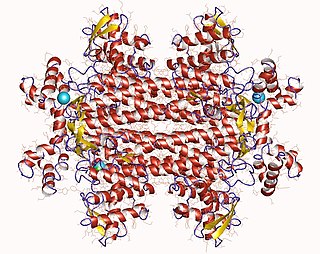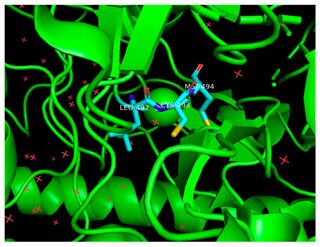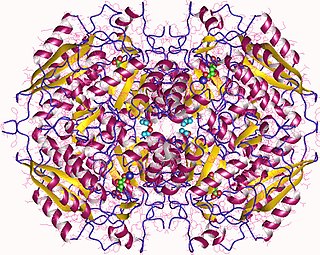| carboxymethyloxysuccinate lyase | |||||||||
|---|---|---|---|---|---|---|---|---|---|
| Identifiers | |||||||||
| EC no. | 4.2.99.12 | ||||||||
| CAS no. | 53167-89-8 | ||||||||
| Databases | |||||||||
| IntEnz | IntEnz view | ||||||||
| BRENDA | BRENDA entry | ||||||||
| ExPASy | NiceZyme view | ||||||||
| KEGG | KEGG entry | ||||||||
| MetaCyc | metabolic pathway | ||||||||
| PRIAM | profile | ||||||||
| PDB structures | RCSB PDB PDBe PDBsum | ||||||||
| Gene Ontology | AmiGO / QuickGO | ||||||||
| |||||||||
The enzyme carboxymethyloxysuccinate lyase (EC 4.2.99.12) catalyzes the chemical reaction
- carboxymethyloxysuccinate fumarate + glycolate
This enzyme belongs to the family of lyases, specifically the "catch-all" class of lyases that cleave carbon-oxygen bonds. The systematic name of this enzyme class is carboxymethyloxysuccinate glycolate-lyase (fumarate-forming). Other names in common use include carbon-oxygen lyase, and carboxymethyloxysuccinate glycolate-lyase.




